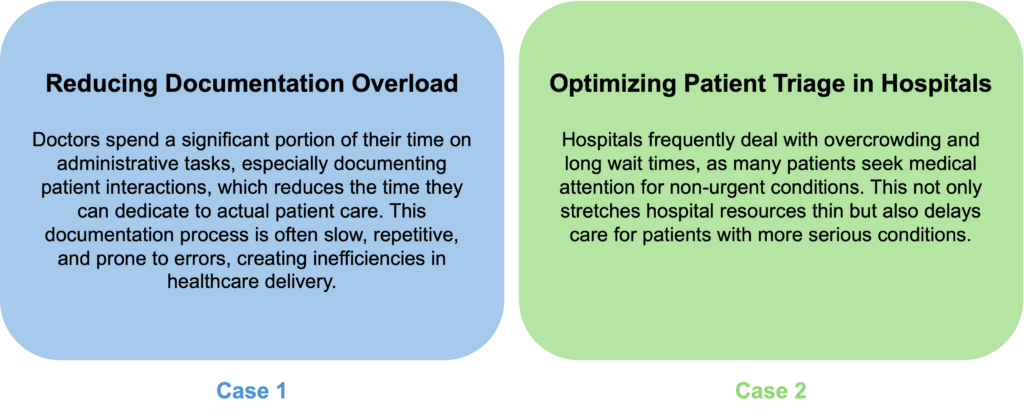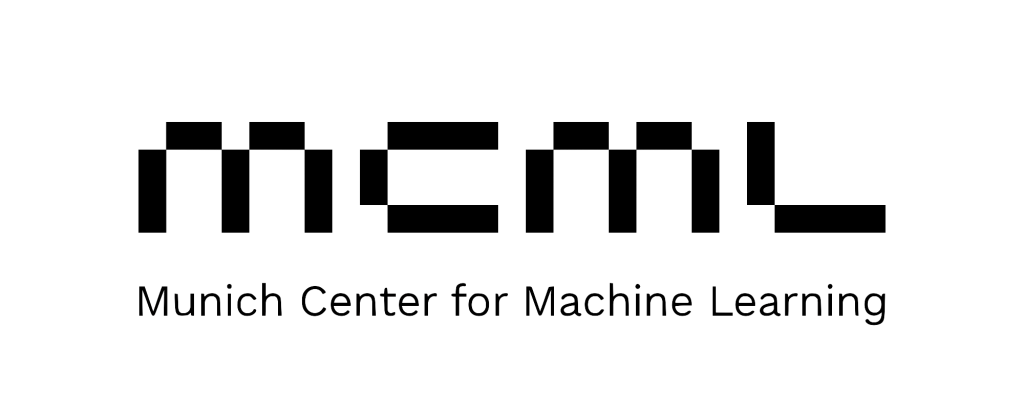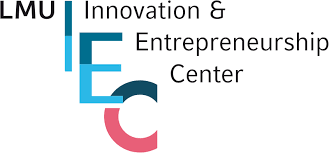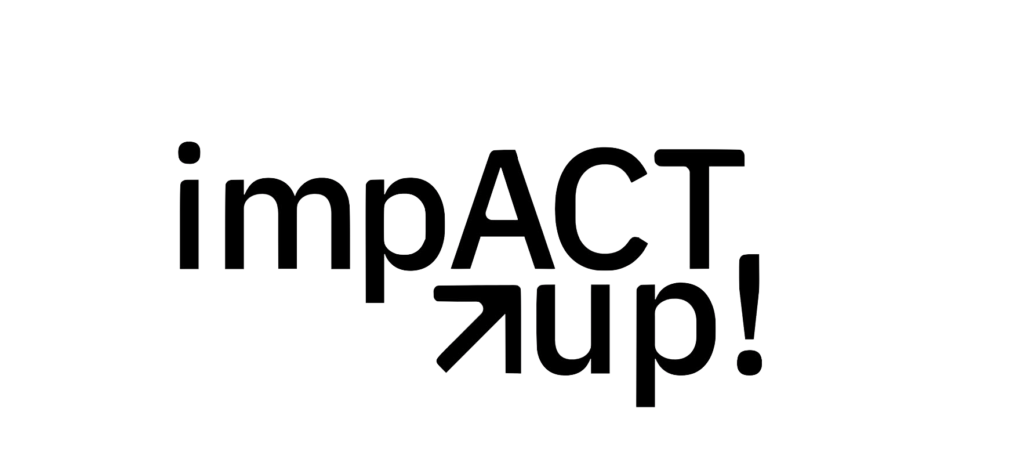
This edition of our event aims to unlock the potential of Start-Ups utilizing AI to revolutionize medical healthcare. But what is healthcare innovation exactly? It involves the integration of AI technologies to improve patient outcomes, enhance diagnostic accuracy, streamline healthcare delivery, and personalize treatment plans, ultimately ensuring better health and quality of life for all.
Our Keynote speakers are AI Researchers, Entrepreneurs, and Start-up Founders. While Friday offers insights through Keynotes and Discussions, Saturday challenges participants to develop their own ideas leveraging AI to improve healthcare diagnostics, treatment, management, and patient care. At the end of the day, the groups will pitch their Start-Up ideas to our highly qualified jury from industry and academia.

Evaluation Criteria for the final Pitches:
- Vision: Your mission or vision, the hook
- Problem: The problem you’re solving, why is it important, what’s the need
- What you do: What is your solution
- Opportunity: The market size of the opportunity
- Money: Business model, how do you plan to make money
- Team: Evidence that your team can execute
Case 1: Reducing Documentation Overload
Problem: Doctors spend a significant portion of their time on administrative tasks, especially documenting patient interactions, which reduces the time they can dedicate to actual patient care. This documentation process is often slow, repetitive, and prone to errors, creating inefficiencies in healthcare delivery.
Challenge: How can AI be used to streamline or automate the documentation process, making it more efficient while maintaining accuracy and ensuring patient confidentiality? Explore how AI might tackle the complexities of medical language, varied documentation formats, and the need for real-time data capture.
Case 2: Optimizing Patient Triage in Hospitals
Problem: Hospitals frequently deal with overcrowding and long wait times, as many patients seek medical attention for non-urgent conditions. This not only stretches hospital resources thin but also delays care for patients with more serious conditions.
Challenge: How can AI assist in the early identification and triage of patients’ symptoms to better guide them toward the appropriate level of care? Consider the potential for AI to assess urgency while maintaining patient trust and minimizing the risk of misdiagnosis.
Additional Open Case Ideas:
- Personalized medicine: Generating dynamic personalized treatment plans
- Healthcare access: Particularly for remote or underserved areas
- Early detection and diagnosis: ML approaches to imaging and interpreting data from ubiquitous technologies like smartwatches
- Drug discovery: Identifying patterns to predict interactions and biological treatments
- Mental health care: Virtual agents can provide therapy and companionship and monitor symptoms
- Your Own Idea!
Organizers:
LMU Media Informatics Group (Prof. Albrecht Schmidt, Julian Rasch)
Munich Center for Machine Learning (Dr. Thomas Meier, Dr. Luke Haliburton)
impACTup! (Dr. Christina Hufeld, Dr. Dominik Domnik)
Contact: Julian Rasch





